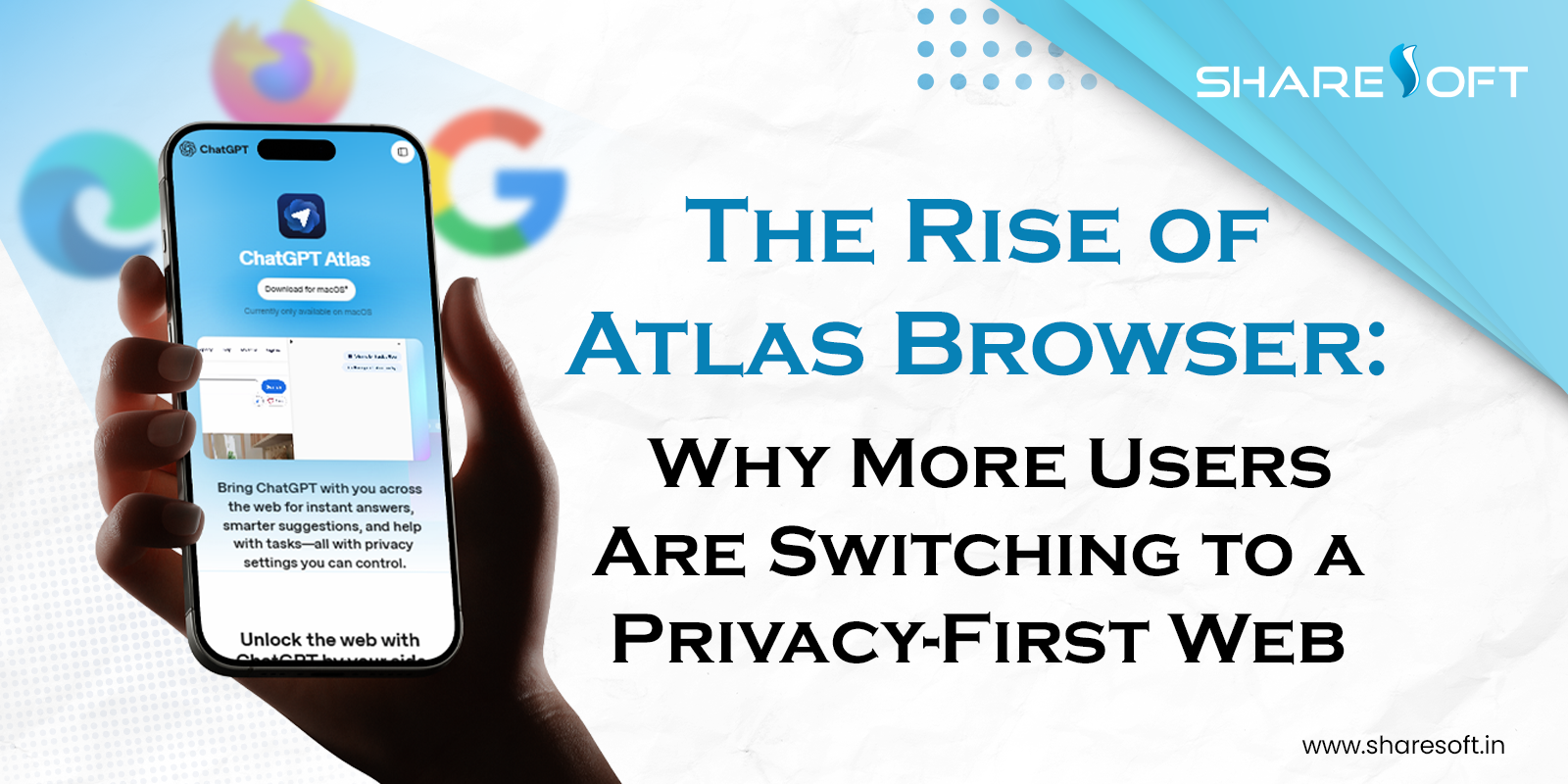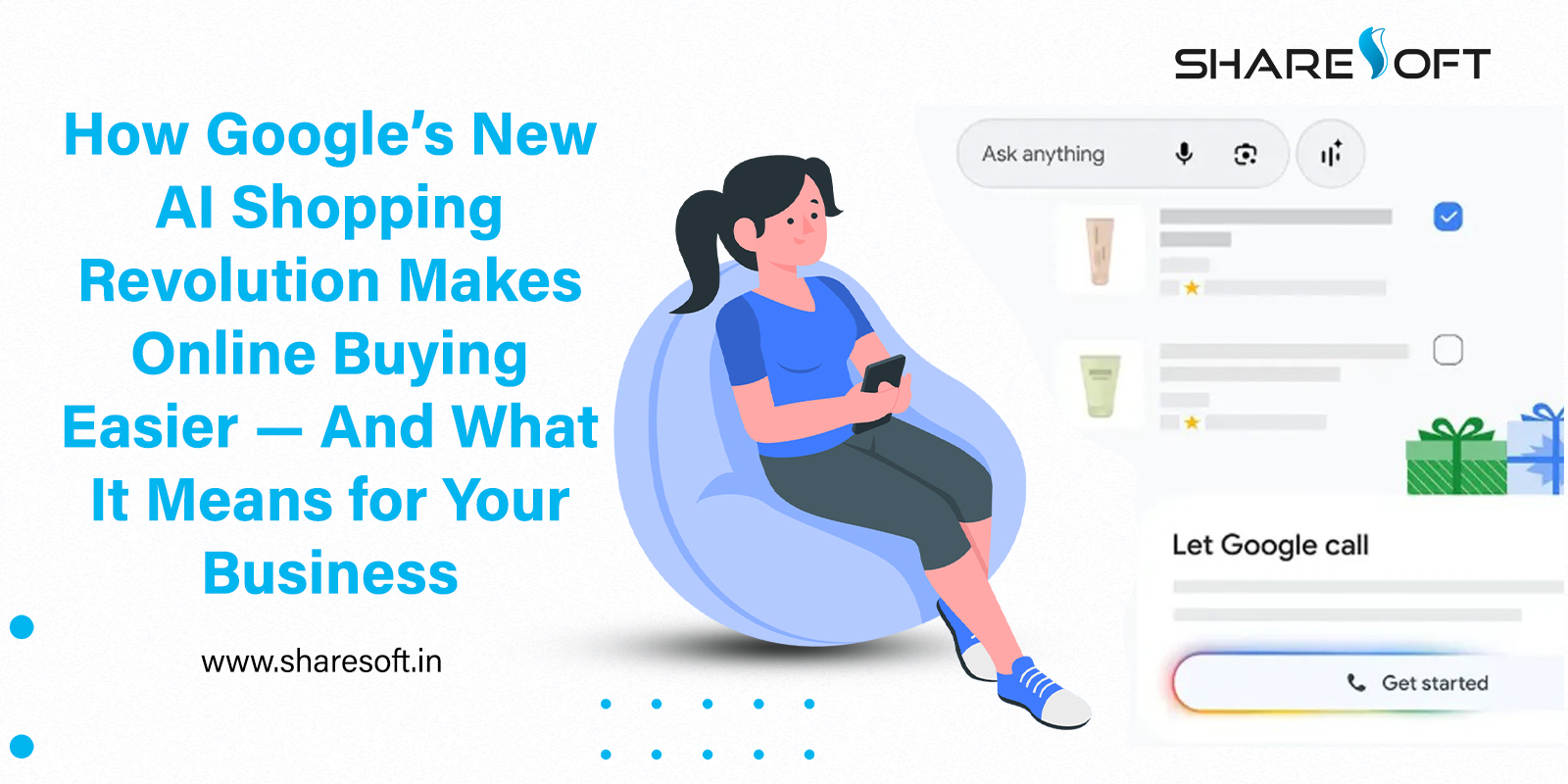
Latest Blog
In today’s digital world, almost everything we do — from searching for information to online shopping — happens through a browser. But here’s the truth: most browsers track you more than you think. Every click, search, and scroll can be recorded, sold, or analyzed for targeted ads. That’s why more people around the globe are turning to privacy-focused browsers. One name that’s quickly gaining traction in this shift is Atlas Browser — a browser designed to give you control, not take it away.
Let’s explore why Atlas Browser is rising so fast, what makes it different from traditional browsers, and how it’s reshaping how we think about online privacy.
1. The Growing Demand for Privacy-First Browsing
It’s no secret — users today care more about privacy than ever before.
A few years ago, people didn’t think twice about cookies or tracking pixels. But with high-profile data leaks, AI-driven ad targeting, and companies knowing more about you than your own friends, privacy has become a deal-breaker.
Browsers like Chrome and Edge dominate the market but collect huge amounts of user data to fuel their advertising networks. Atlas Browser flips that model on its head. Instead of harvesting user data, it’s built around user consent and transparency.
Privacy is no longer a luxury — it’s a necessity. And Atlas Browser is stepping up to meet that need.
2. What Makes Atlas Browser Stand Out
So, what exactly is Atlas Browser, and why is it different?
Atlas Browser focuses on three pillars:
-
Privacy by design
-
Speed and performance
-
Freedom from clutter and ads
It’s not just another Chrome alternative. It’s built with the modern web in mind — balancing privacy and performance without compromising usability. Here’s how it differs from mainstream browsers:
-
No trackers or third-party cookies: Atlas doesn’t let advertisers or hidden scripts follow you around.
-
Built-in ad and script blockers: Pages load faster and cleaner without intrusive ads or pop-ups.
-
Private search engine integration: Instead of selling your queries to data brokers, Atlas routes searches through privacy-respecting search engines.
-
Lightweight and minimal interface: Ideal for users who value simplicity and speed over heavy UI features.
These features aren’t just nice add-ons — they redefine how we experience the web.
3. Atlas Browser vs Traditional Browsers
Let’s be honest: many users are tired of Chrome’s memory usage, Firefox’s updates, or Safari’s limitations.
Here’s how Atlas Browser compares:
| Feature | Atlas Browser | Google Chrome | Mozilla Firefox | Microsoft Edge |
|---|---|---|---|---|
| Privacy Protection | Built-in | Minimal | Moderate | Limited |
| Ad-Free Browsing | Yes | No | Optional | No |
| Data Collection | None | Extensive | Moderate | High |
| Speed & Performance | Lightweight | Heavy | Moderate | Heavy |
| User Tracking | Blocked | Allowed | Limited | Allowed |
| Default Search Engine | Private Search | Bing |
Atlas Browser wins when it comes to balancing privacy and usability. It’s designed for the new generation of digital users — people who value control and freedom online.
4. The Role of AI in Modern Browsers
Even as Atlas Browser focuses on privacy, it doesn’t ignore the role of AI in enhancing browsing experiences.
From smart search suggestions to contextual summarization tools, AI is quietly transforming how we browse the web. However, with great power comes great responsibility — and privacy risks.
Atlas Browser integrates AI responsibly. Instead of sharing user data with third-party AI services, its architecture ensures that personalization happens locally, not on cloud servers that can store user information.
This balance between AI assistance and privacy protection is one reason digital professionals and privacy-conscious users are exploring Atlas.
5. Why Businesses and Developers Are Paying Attention
Atlas Browser isn’t just for individual users — it’s catching the attention of businesses and developers, too.
As privacy regulations like GDPR, CCPA, and DMA tighten globally, companies need platforms that respect compliance. A browser that limits data tracking inherently reduces risk.
Developers also appreciate Atlas for its developer-friendly environment — modern standards, open web compatibility, and fast rendering. It’s not bloated with telemetry or extensions that slow down workflows.
For digital professionals, Atlas is becoming a smart alternative that aligns with responsible tech trends.
6. The Shift Towards a Privacy-Centric Internet
We’re witnessing a global shift.
For decades, the internet was built around monetizing user data. But with privacy-first browsers like Atlas leading the change, we’re entering a new era — one where users regain control over their digital footprints.
This change isn’t happening overnight, but the trend is undeniable. According to market insights, privacy-focused tools — VPNs, encrypted messaging apps, and anonymous browsers — are seeing record adoption. Atlas Browser represents the next evolution of that movement.
7. Why Speed Still Matters
One myth about privacy browsers is that they’re slower. But Atlas proves otherwise.
Its streamlined design eliminates unnecessary background processes and trackers that often consume bandwidth. With fewer scripts running, pages load faster and use less memory.
In essence, privacy improves performance — fewer ads, fewer interruptions, and faster results.
It’s an ideal setup for anyone who wants both privacy and productivity.
8. A New Way to Browse: Focused, Distraction-Free, and Ethical
Let’s face it — today’s web can be noisy. Auto-playing videos, pop-ups, notifications, and cookie banners constantly pull your attention.
Atlas Browser takes a minimalist approach. Its clean design keeps you focused on content rather than clutter. There are no distractions, no pop-ups asking for permissions every few seconds — just the web as it should be.
It’s an ethical browsing experience — transparent, open, and respectful.
9. Atlas Browser for Privacy-Conscious Users
If you care about who sees your data, Atlas is designed with you in mind.
Unlike browsers that store browsing history in the cloud, Atlas keeps everything local and encrypted. You can clear your history instantly, use incognito-style sessions, or run it through a secure network.
The best part? You don’t have to sacrifice convenience. It supports modern web apps, extensions, and cloud syncing — without compromising security.
10. The Future of Browsing: Human-Centered, Not Data-Driven
The rise of Atlas Browser highlights a much bigger trend — users want control.
We’re entering an age where browsing isn’t about being tracked or analyzed. It’s about being informed, protected, and respected.
With AI tools and search engines evolving daily, browsers like Atlas remind us that privacy should remain the foundation of digital progress.
11. Where Sharesoft Technology Fits In
At Sharesoft Technology, innovation meets integrity.
Our team explores digital solutions — from AI-driven optimization to privacy-friendly web applications — that empower modern users and businesses.
While we don’t build browsers ourselves, we stay at the forefront of privacy-focused digital ecosystems. Our expertise in AI SEO, web development, and automation helps companies thrive in this new era of responsible technology.
If your brand is looking to align with ethical digital innovation, Sharesoft Technology can help you build a platform that respects user privacy while achieving measurable results.
12. Your Web, Your Rules
The rise of Atlas Browser isn’t just about another app — it’s about reclaiming your digital freedom.
Every search, every click, every online moment should be yours, not a data point for advertisers.
Atlas Browser proves that a better, safer web is possible — one that prioritizes privacy, performance, and user experience.
So whether you’re a casual user or a digital creator, remember: your browser shapes your digital identity. Choose one that respects it.
Ready to Build Your Digital Future Responsibly?
If you’re inspired by privacy-first innovation and want your business to reflect those same values, Sharesoft Technology can help.
We specialize in privacy-compliant, SEO-optimized, and AI-ready digital solutions that empower users and protect their data.
👉 Get in touch with Sharesoft Technology today to create your next privacy-centric digital experience.
FAQs: Atlas Browser and Privacy-First Browsing
1. Is Atlas Browser completely private?
Atlas Browser is designed to maximize privacy by blocking trackers, disabling third-party cookies, and preventing data profiling. However, no browser can offer 100% anonymity — combining Atlas with VPNs or encrypted networks provides stronger protection.
2. Does Atlas Browser use AI?
Yes, in limited and secure ways. Atlas may use AI locally for features like smart recommendations or search optimization — but your personal data never leaves your device.
3. How is Atlas Browser different from Chrome or Firefox?
Unlike Chrome or Firefox, Atlas Browser doesn’t sell user data or rely on advertising networks. It focuses on speed, privacy, and minimalism.
4. Is Atlas Browser free?
Most versions of Atlas Browser are free, though advanced privacy tools or ad-blocking enhancements may be available in premium tiers.
5. Can Atlas Browser improve website performance?
Yes. By blocking trackers, heavy ads, and unnecessary scripts, Atlas loads websites faster while using less bandwidth.







